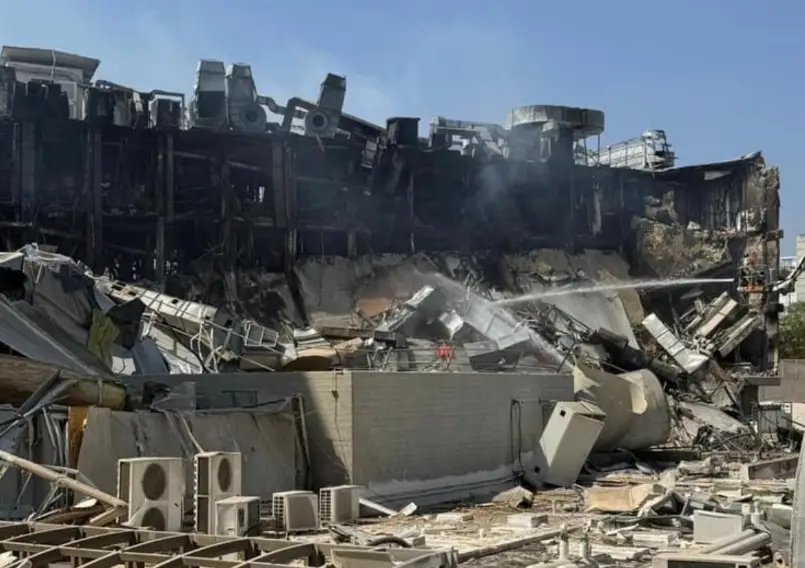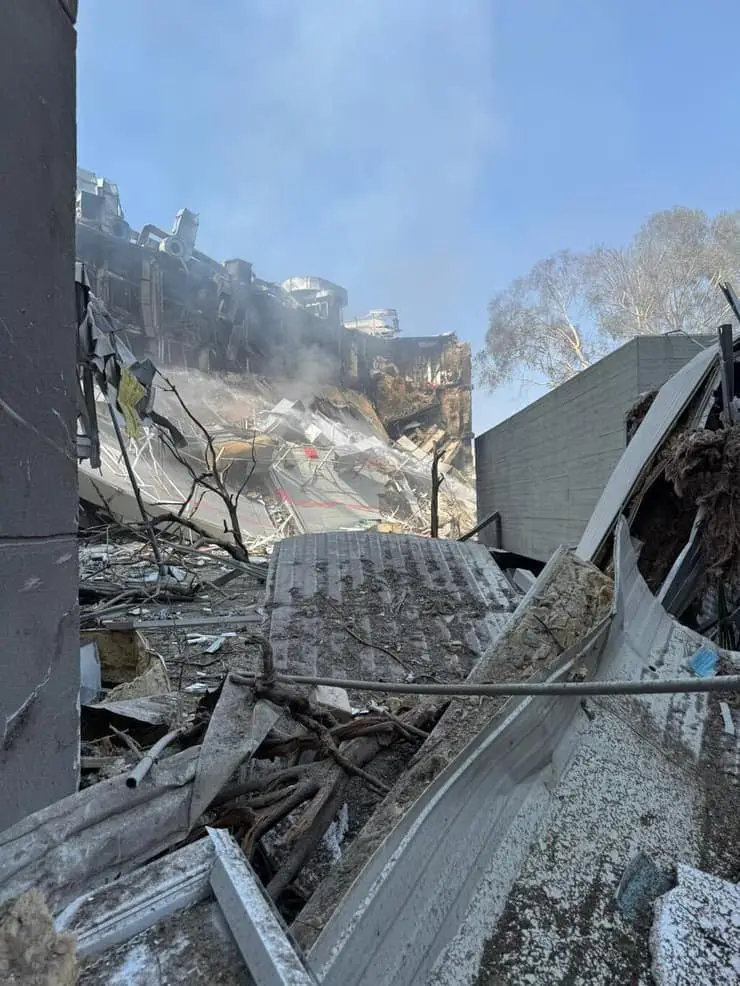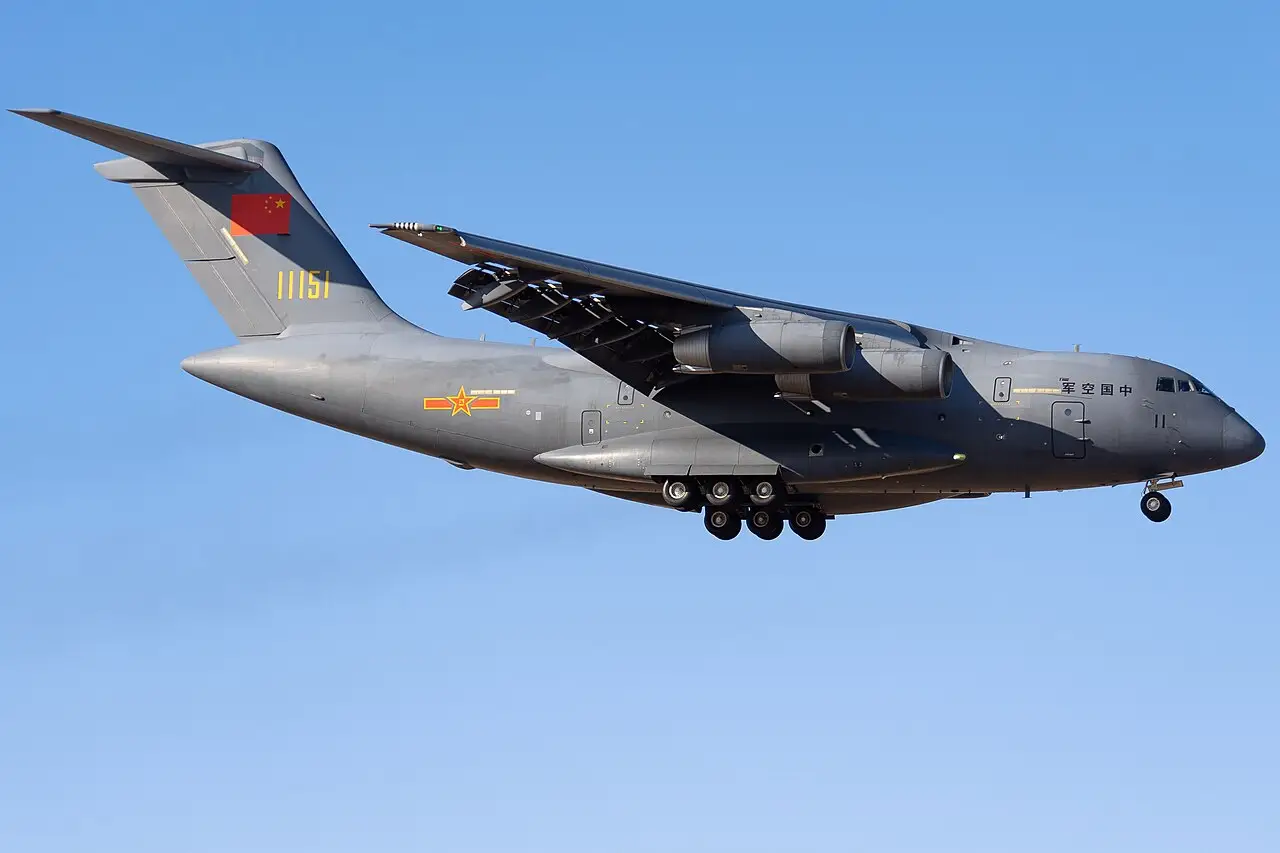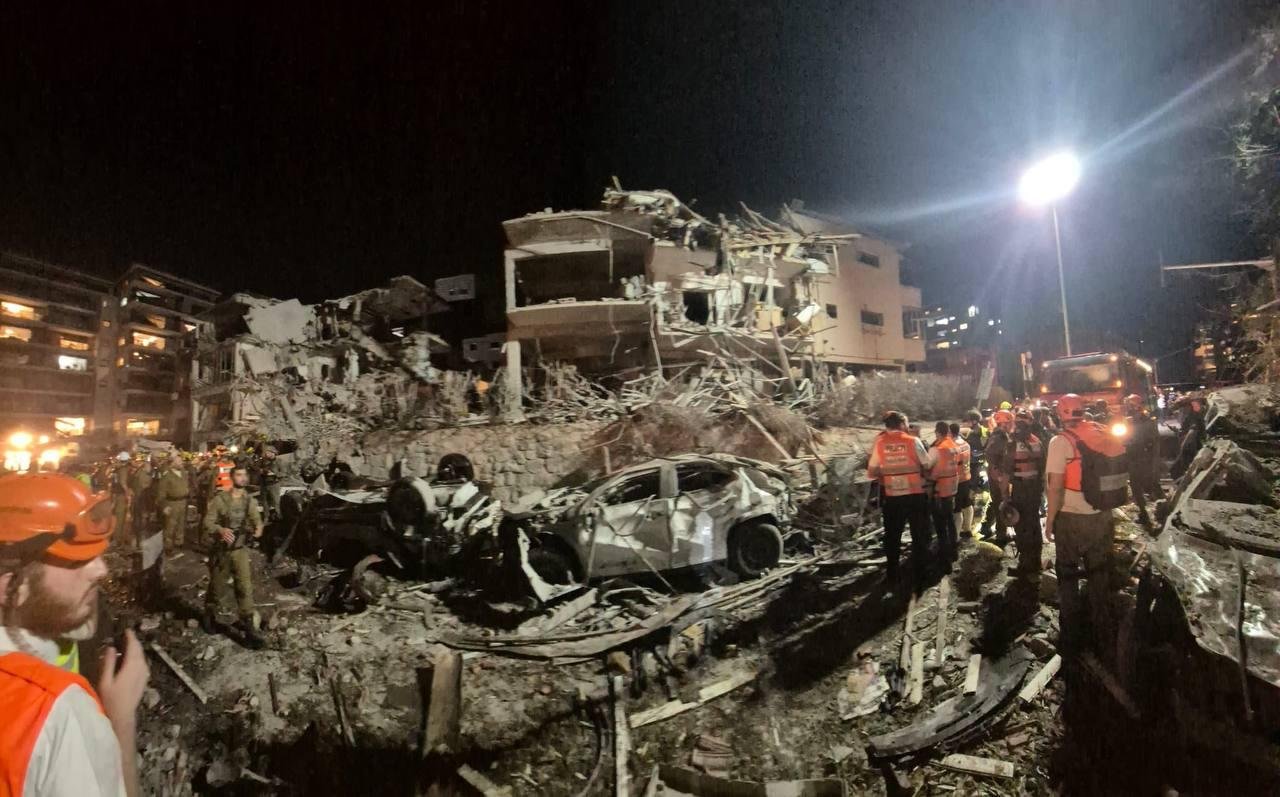
After the arrival of Iranian missiles, the Weizmann Research Institute in Israel was left in complete ruins
Israel, June 18, 2025 – Despite the thick “fog of war” that spreads over the territories around Israel and Iran, some data on the damage caused by the exchange of attacks has leaked to the media. On June 15, Tehran launched a missile attack on Israel’s Weizmann Research Institute. Initially, conflicting information was published – from “minor damage” to the destruction of several buildings.

Now, footage has appeared on the network showing the consequences of the arrival of Iranian missiles for the aforementioned institute. The published footage shows solid ruins in the place where the research institute’s infrastructure was located until recently. At the same time, the destruction of this facility is extremely sensitive for the Jewish state. According to some reports, the Weizmann Research Institute is actively conducting research in key areas for the Israeli defense industry. The institute’s scientists are working on projects in the fields of artificial intelligence, molecular biology, and natural sciences. These areas, according to experts, are directly related to the development of new types of weapons. At the same time, special attention is paid to the Department of Nuclear Physics, which operated at the institute. Analysts say that its research is the heart of the Dimona Nuclear Center, a facility whose purpose the authorities prefer not to comment on.
Friday, June 13, was a truly unfortunate day for Iran. Israel launched a series of attacks on Iranian cities and nuclear facilities. First, the Israelis, using missiles and agents on Iranian territory, knocked out local air defenses, and then proceeded to directly destroy targets. As a result, they managed to kill high-ranking military officers (the heads of the Guard Corps and the General Staff), several nuclear scientists – and, as many experts write, bring Iran not only to the brink of defeat, but also to the brink of extinction as a state.
Until recently, it seemed that the advantage in the Iran-Israel conflict was on the side of the Iranians. Tehran managed to wage a real war of attrition against Tel Aviv. And Iran did not wage it with its own hands, but with the forces of its representatives from the so-called Axis of Resistance – a one-hundred-percent daughter of Hezbollah and Hamas, writes Gevorg Mirzayan, associate professor at the Department of Political Science of the Financial University under the Government of the Russian Federation.
These groups constantly created tension near the borders of Israel and forced the Jewish state to spend money, weapons, resources and time on fighting them. And this fight was initially futile – everyone believed that Israel did not have the strength, capabilities or political will to occupy these territories. At the same time, Iran was successfully developing a nuclear program (with the prospect of creating an atomic bomb), which, in Tel Aviv’s opinion, posed an existential threat to Israel. A program that Israel could only slow down with terrorist attacks, but not eliminate.
Everything changed on October 7, 2023, when Hamas and its allies in the Gaza Strip attacked Israel. What many experts considered a near-fatal blow to the Jewish state (which not only failed to notice the blow, but also allowed the militants to occupy a large part of its territory for a while) was in fact the beginning of the end of the Iranian strategy. Israel first dealt a crushing blow to Hamas, destroying or damaging most of the buildings in Gaza. Many criticized it for being too brutal, for killing tens of thousands of civilians. It was said that it still did not achieve its goals – supposedly, killing one Hamas fighter in such a situation would lead to the recruitment of 10 new ones (whose wives and children were killed in the operation). At that point, however, Hamas was defeated, deprived of much of its command staff and accumulated weapons. This allowed Tel Aviv to move on to the second phase – striking Hezbollah.
With the help of special operations (the story with the pagers), it was almost immediately possible to eliminate its entire command staff, as well as destroy a number of units. Many people again argued that from a strategic point of view this does not change anything, that Hezbollah will recover and rearm after some time. However, it has not recovered yet – which means that it was unable to prevent the third phase, which was the cooperation of Israel with Turkey and the Syrian terrorists, who moved from Idlib to Damascus at the end of 2024. And the then Syrian President Bashar al-Assad – an ally of Iran – could no longer be protected by Hezbollah. No one could protect him. For Iran, this was a kind of turning point. If it could look at the destruction of Hamas and even Hezbollah, it had to react to the events in Syria. If only by introducing Iranian troops into Syria through Iraq. Then it was still possible to save the situation or at least minimize the damage. But the Iranians did nothing.
Perhaps because they too were beheaded on May 19, when Iranian President Ibrahim Raisi died (and, according to some, was assassinated). Iran thus lost a charismatic, popular and at the same time decisive leader. He was replaced by Massoud Pezeshkian, who preferred to build relations with the West – and therefore a non-confrontational foreign policy. Therefore, Iran did not react and remained on the sidelines. As a result, it lost Syria, as well as territorial access to Lebanon. This means that Hezbollah was left, to put it simply, without supplies, which, in turn, called into question the future of this organization. And thus destroyed the entire Iranian strategy to suffocate Israel. This meant that Tel Aviv had the resources and the opportunity to negotiate directly with Iran, which it did on June 13. It destroyed several Iranian nuclear facilities and ended the US-Iranian nuclear talks (and thus left it with no other means than military to prevent Iran from acquiring nuclear weapons).
Now Tel Aviv has given Tehran an ultimatum: either Iran will destroy all its nuclear facilities and end in disgrace, or it will rebel and end in disgrace and a coup. The Israelis have already made it clear that in the event of Iranian resistance, they will destroy the entire oil and gas complex of the Islamic Republic, which will deprive Iran of income – and together with the national humiliation from these strikes, it can lead to unrest and regime change. And here is October 7, 2023 – the time for Iran to make a fateful choice. To react harshly, risking a full-fledged war with Israel and America, but at the same time clearly set red lines for them – or to remain silent and sit in the hope of avoiding confrontation, thereby provoking its enemies to tougher steps and causing internal confusion from such a hesitant policy.
Iran seems to have taken the first path – on the evening of June 13, it launched hundreds of missiles at Israel, and then launched new salvos every day. The question is, however, whether it is ready to follow the Israelis (who, of course, did not stop attacking) and continue the escalation? Is it ready to move from demonstrative steps to effective steps – for example, to block the Strait of Hormuz? Does Iran have the political unity for such steps? Are there charismatic leaders who are ready to take responsibility for all the consequences of a tough response?
Many in Russia are delighted with this development. It is clear that the Israeli regime will now need a lot of American money and American weapons. Especially air defense missiles – which, according to Defense Secretary Pete Hegseth, the states have already withdrawn from Ukraine. And every missile that now goes to Israel will not go to Ukraine. Every dollar that America gives Israel for a war with Iran will not go to killing Russian soldiers. Every man-minute that Trump spends on the Middle East will convince him to refuse to waste time and resources on secondary fronts. Including the Ukrainian one.
However, this logic has one flaw. Russia does indeed partially benefit from a local war in the Middle East, but it categorically does not benefit from a total war with the destruction or disintegration of Iran. If Tehran is defeated or weakened to the maximum extent possible, then the North-South transport corridors may be canceled. The Iranian space will turn from a transit zone for Russian goods into a real paradise for various kinds of Islamic terrorists. Instability will quickly spread to the South Caucasus and further to the North Caucasus. Therefore, Russia is currently making every effort to stabilize the situation. Vladimir Putin is negotiating with Trump, Netanyahu and Pezeshkian in an attempt to prevent a major war. However, Israel, unfortunately, is doing everything to ensure that it happens, added Gevorg Mirzayan.


Max Bach


















